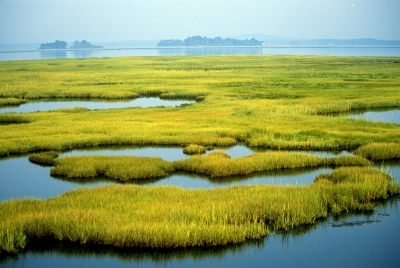Nature-based solutions are key to tackling water insecurity, says UN

The UN’s annual World Water Development Report 2018 has highlighted the need to use nature to combat the challenges of a growing population and climate change.
In its detailed analysis, the reportdemonstrates that demand for water is increasing in developing countries, while simultaneously access is being put at risk by human development and climate change.
Deforestation, intense farming methods and urbanisation are putting these resources under pressure, while climate change is making parts of the world more susceptible to both droughts and flooding. In response, the UN argues that nature has a variety of untapped solutions to help meet these challenges.
“We need new solutions in managing water resources so as to meet emerging challenges to water security caused by population growth and climate change. If we do nothing, some five billion people will be living in areas with poor access to water by 2050. This Report proposes solutions that are based on nature to manage water better. This is a major task all of us need to accomplish together, responsibly so as to avoid water related conflicts,” declared Audrey Azoulay, the Director-General of UNESCO, which worked on the study.
The report makes the case for working with nature to support a “resource-efficient and competitive circular economy”. This mean mimicking natural processes such as soil moisture retention, building large new wetland areas, and restoring floodplains or green roofs.
Incorporating techniques found in natural can have environmental, social and economic benefits and help achieve the vital Sustainable Development Goals into the 2020s, it concludes.
“For too long, the world has turned first to human-built, or “grey”, infrastructure to improve water management. In so doing, it has often brushed aside traditional and Indigenous knowledge that embraces greener approaches. Three years into the 2030 Agenda for Sustainable Development, it is time for us to re-examine nature-based solutions to help achieve water management objectives”, said Gilbert F. Houngbo, Chair of UN-Water and President of the International Fund for Agricultural Development.
It’s hoped that a blend of both green and grey investments can increase water efficiency in a cost-effective way.
Join us at the 4th Annual AIDF Asia Summit on 20-21 June 2018 in Bangkok.
Our AIDF Global Summit returns for its 10th Anniversary on 5-6 September in Washington, D.C.
If you’d like to stay informed on the latest updates in aid and development, please sign up for the AIDF newsletter.















